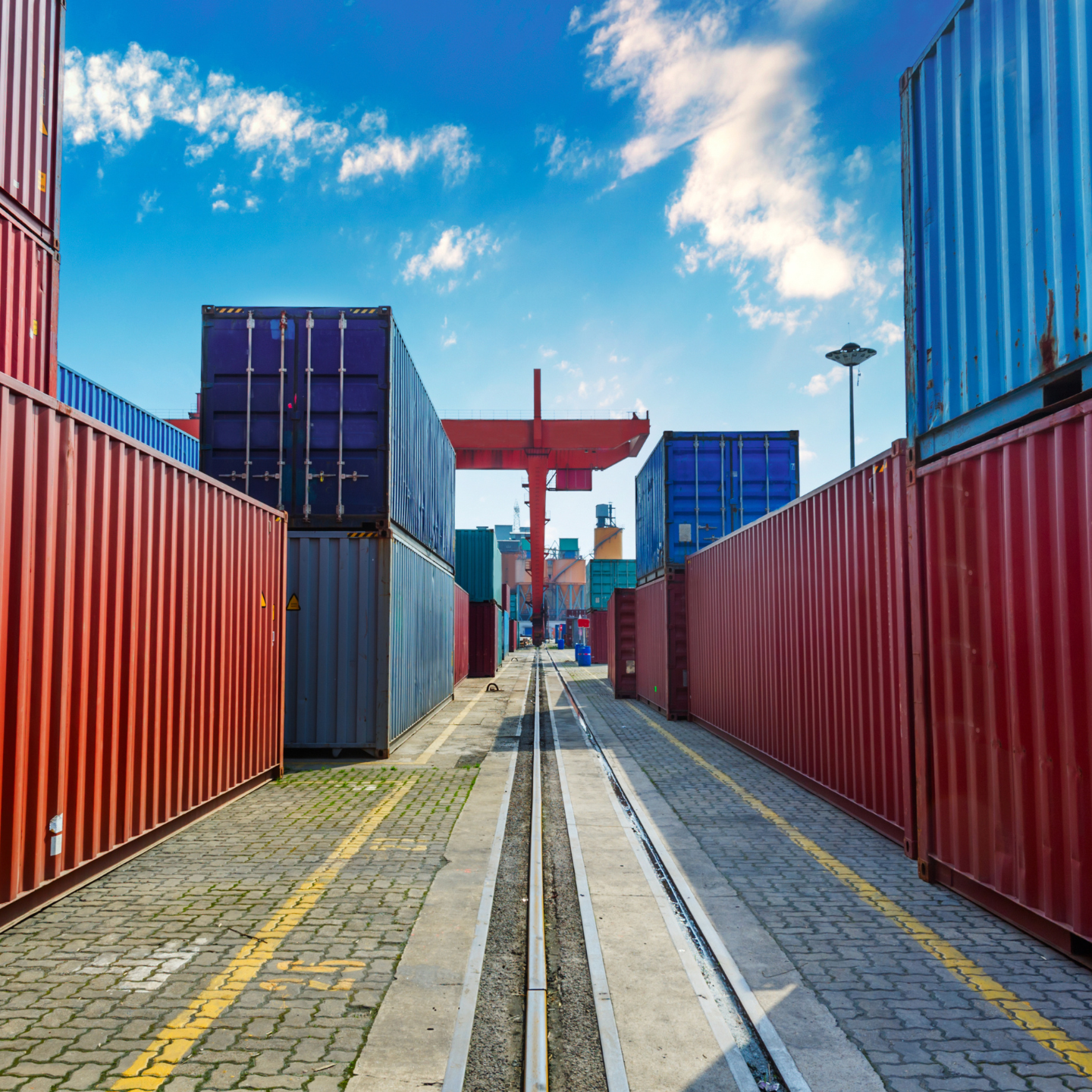Currency exchange solutions for the shipping industry

We help shipping providers save time and money on international
It would not be an understatement to say that the international shipping industry is the lifeblood of the global economy. With more than 80% of the volume of international trade transported by sea, the shipping industry is a critical facilitator of trade and global commerce.
The Coronavirus outbreak brought severe disruption to the shipping and logistics sector in 2020; this persisted in the following years, with shipping bottlenecks plaguing ports in 2021 and well into 2022. Since then, the war in Ukraine, ongoing tensions in the Middle East and the Israel-Gaza conflict have resulted in increasing uncertainty in the industry.
As such, it has never been more important for the shipping industry to utilise every avenue available to ensure the efficient management of resources - which means using effective competitive currency exchange services and FX strategies that fulfil their business requirements.
All of the voyages that are made within the shipping industry take place within the context of the wider international supply chain. Given the globalised nature of the industry, it’s essential that shippers hedge themselves against unfavourable movements in the currency
What contribution does the shipping industry make?
The shipping industry makes a remarkable contribution to the UK economy. According to a report from the Centre for Economics and Business Research published in 2022*, the UK shipping industry generated £26.6bn in turnover, an increase of 41% from 2010, and £6.6 billion in GVA. It also directly supports 161,000 jobs.


*Report published by the Centre for Economics and Business Research
How international payments and exchange rates affect the shipping and logistics industries
The global nature of the shipping industry makes it particularly vulnerable to fluctuations in foreign exchange rates. Shipping companies need to create a series of international payments for each voyage their ships make, which necessarily involves the use of various currencies.
These payments include purchases of bunker fuel, maintenance works, orders of new pieces of equipment, port dues and payment of crew members, many of whom may request payment in their home currencies. Ocean freight rates are usually priced in dollars, further exposing shippers to currency exchange rate fluctuations. Finally, banks often charge substantial fees on their international payments and foreign exchange services.
All of these expenses must be settled at different points during each voyage, leaving maritime professionals particularly exposed to foreign exchange rate fluctuations. With all of these concerns in mind, Moneycorp is delighted to offer flexible, cost-effective currency exchange solutions and low-cost international payments that can save shipping industry professionals time and money on their foreign exchange payments.
How has Brexit continued to impact the shipping sector?
Following the UK’s vote to leave the European Union in June 2016, the pound sterling fell to its lowest level against the dollar in 31 years. This was a positive result for British shipowners, who could make significant returns upon repatriating revenues they’d received in dollars into sterling.
Eight years on, however, the picture is a decidedly mixed one, with the shipping industry in the UK suffered from a doubling in delays at UK ports due to customs rules on goods entering Britain from the EU that were introduced post-Brexit.
Here is how Brexit is still impacting the shipping industry
• Increased costs and administrative burden: Post-Brexit, UK exporters face higher freight costs and more administrative hurdles. The new customs requirements have led to increased paperwork, which has added delays and costs to the supply chain. This has particularly affected roll-on-roll-off ferry ports like Dover, where even minor delays can cause significant traffic jams and logistical issues.
• Trade and compliance challenges: The introduction of the UK Global Tariff (UKGT) regime has altered the tariff landscape, reducing tariffs on some goods while increasing them on others. Companies now face new compliance requirements, such as the need for import and export declarations and detailed origin calculations for goods, which complicate trade with the EU and other countries.
• Workforce shortages: The departure of many European nationals from the UK has created a labour shortage, impacting the logistics sector. The shortage of truck drivers, warehouse staff, and other logistics workers has exacerbated supply chain disruptions and increased operational costs for shipping companies.
• Port traffic and freight volumes: UK ports have experienced a decline in freight volumes. This decline is attributed to both Brexit and the COVID-19 pandemic, which together have disrupted normal operations and trade flows.
The sector is now experiencing a period of change, with governments and industry stakeholders implementing various measures to modernise and mitigate the impact of any future issues, such as extending port working hours, improving logistics coordination, and investing in new technologies and infrastructure. However, these adjustments take time to implement and yield full results.
In the meantime, securing competitive rates on international payments and developing an FX strategy to minimise currency risk is one way in which shipping industry professionals can safeguard their bottom line against an uncertain future.

For companies literally dealing in international waters, maximising payment efficiencies, and removing the possibility of payment failure is high on the priority list. We help many key players in the global shipping and freight industry with to maximise their payment efficiencies through our bulk payments solutions and API plug-ins, ensuring smooth sailing for our clients.
How we can help your business save money?
We can help you navigate your way through the foreign exchange market and save money on payment routes. We do this by leveraging our local clearing capabilities to help solve the complexities of settling with local port authorities worldwide.
Your business multi currency account provides you the flexibility to pay crew members around the world on an ad-hoc or recurring basis, manage additional costs and minimise cash on board vessels through account and card services to operators and the crew.
Our team of experienced account managers looks after thousands of businesses, a large proportion of which work within the shipping industry. This enables us to propose tailored solutions to help protect their finances. With global payment solutions for international businesses and strategies for currency risk management, we work to provide effective FX solutions for the shipping industry.
The sector is now experiencing a period of change, with governments and industry stakeholders implementing various measures to modernise and mitigate the impact of any future issues, such as extending port working hours, improving logistics coordination, and investing in new technologies and infrastructure. However, these adjustments take time to implement and yield full results.
In the meantime, securing competitive rates on international payments and developing an FX strategy to minimise currency risk is one way in which shipping industry professionals can safeguard their bottom line against an uncertain future.
How we can help your business save money?
We can help you navigate your way through the foreign exchange market and save money on payment routes. We do this by leveraging our local clearing capabilities to help solve the complexities of settling with local port authorities worldwide.
Your business multi currency account provides you the flexibility to pay crew members around the world on an ad-hoc or recurring basis, manage additional costs and minimise cash on board vessels through account and card services to operators and the crew.
Our team of experienced account managers looks after thousands of businesses, a large proportion of which work within the shipping industry. This enables us to propose tailored solutions to help protect their finances. With global payment solutions for international businesses and strategies for currency risk management, we work to provide effective FX solutions for the shipping industry.
Our international payments solutions for your business
To find out more about our foreign exchange and global payment solutions for businesses, you can view our brochure.




